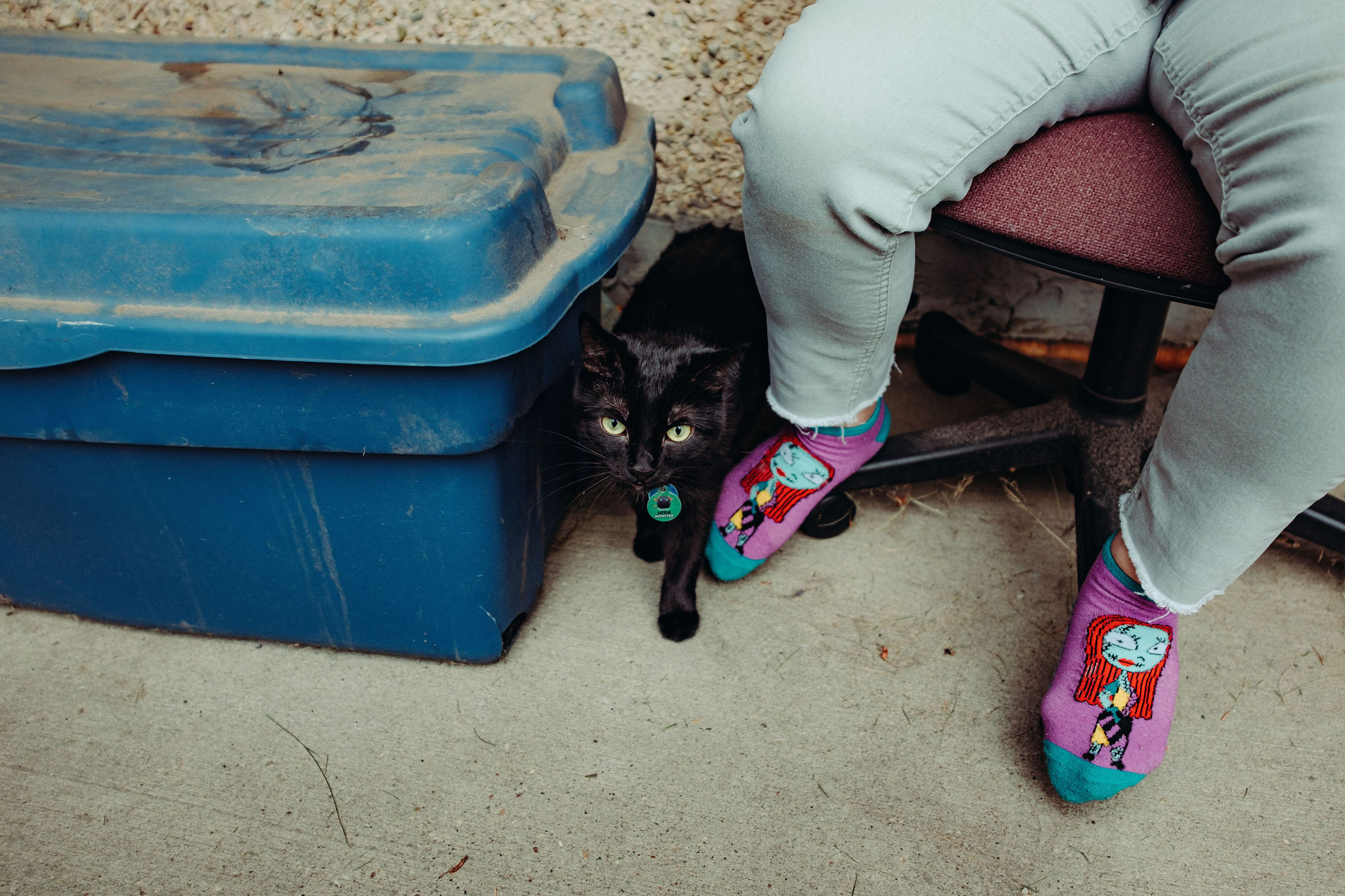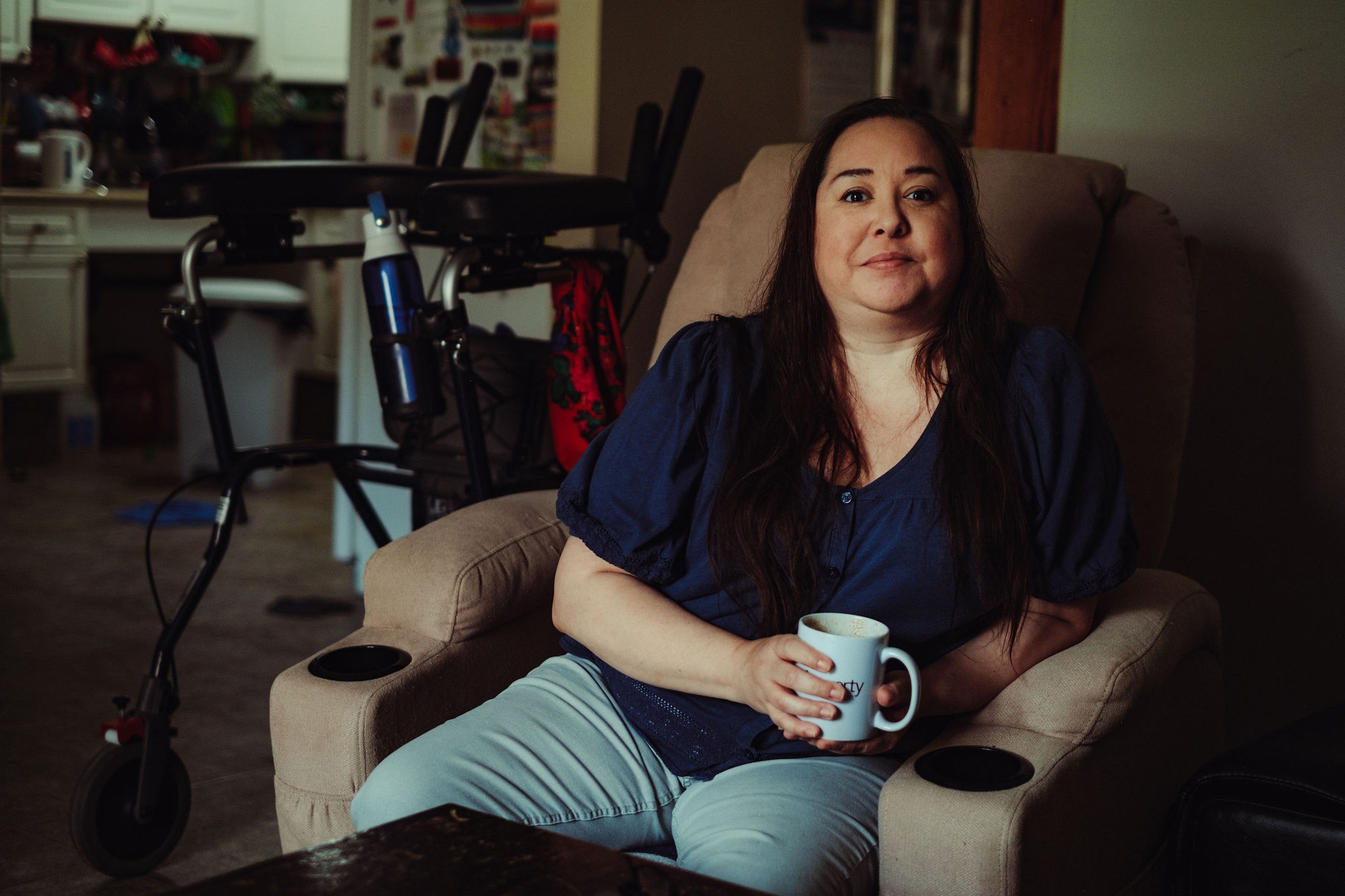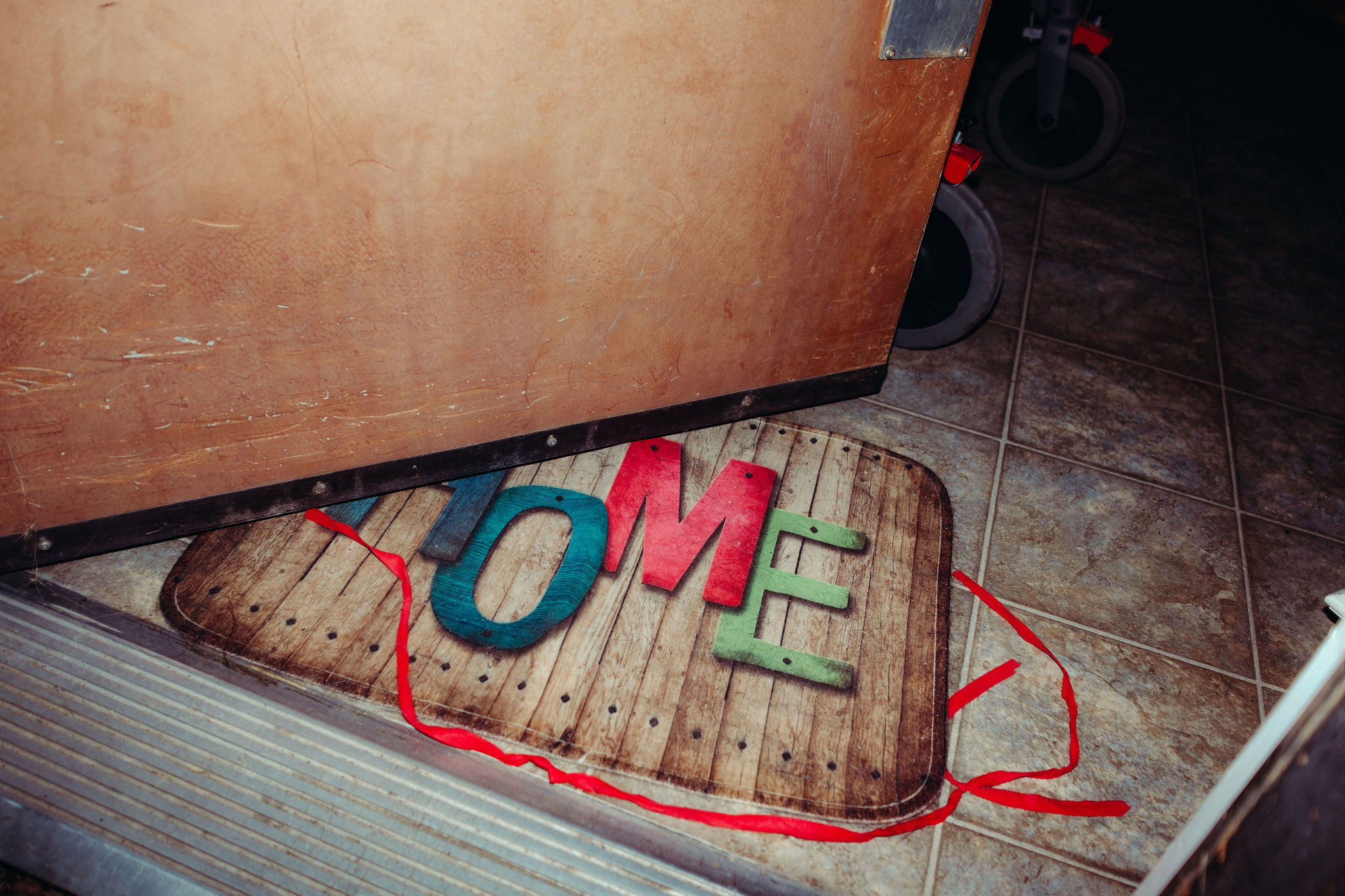This is one of 12 interviews conducted with various Edmontonians about their experience with the housing system. It has been edited for clarity and length. Read more about why and how Taproot embarked on this series.
Nadine Chalifoux, whose Cree name means Green Butterfly Woman, provides information and advice to people experiencing homelessness or navigating the municipal and provincial social service systems. She earned a diploma in business administration from what was then known as Grant MacEwan College. After experiencing homelessness for a time in her thirties, Chalifoux has devoted her life to helping others experiencing hardship in the housing system. She suffers from a degenerative physical disease that affects her housing needs.
Can you tell us what role you play in the housing ecosystem now?
I call myself an independent advocate because I refuse to join agencies with mandates that require them to focus on statistics instead of on real people. Unfortunately, the system today treats you like you don't belong, you're not human, you don't have any rights, you're just not worth the work, and it breaks my heart. Because so much benefit could come from treating people better, and I know that because that's what I do for people.
I help them so they don't have to have the traumas and the pain as severe as I did. Unless you've lived it, it's really hard for people to grasp the concept of what needs to be done. I even created a course to help peer workers, social workers, or workers in frontline agencies (learn) how to use a lived-experience perspective in their work so they can be more compassionate, more empathetic, more understanding, and more patient. Patience is really the biggest thing that we need of our workers.
Can you speak a little bit about your experience of being homeless?
Living homeless, you have only three options. You sleep rough outside on the ground, with no roof, no walls, no protection, no safety. I've slept in the ravine. I've slept up against businesses. I've slept in parking lots. If you're sleeping out on the street, you're exposed to the weather, and you're exposed to other people. And I say this very bluntly, people who are considered regular, tax-paying residents of the city, they're the ones I find are worse if you're sleeping rough. They treat you harshly, they ridicule you, they talk down to you, they treat you the worst, to the point that you want to hide somewhere.
You can get into an emergency shelter, so that means then you can sleep at night in a place that still may not be too safe, but you have four walls and a roof, which protects you from the elements at least. Or you can get yourself situated into a regular shelter, and there are far fewer shelters than we need.
It was while I was homeless that I really started to feel my pain was something I could use to help others. I had enough cognitive faculty to understand what needed to be done, but 95% of homeless people don't have that, their cognitive ability is taken up for just survival. The person that I've always been, I felt like something had to be done. So, I was still homeless when I started digging into resources and programs and services, and people knew me back then as the lady with the cart. I had one of those little, you know, two-wheel cart things and inside it I had all my stuff, but I also had a bag of pamphlets and brochures and cards, whatever I needed to give to other people so that they had somewhere they could at least start with.
Most people who are out on the street sleeping rough, they sleep about three hours at night and then an hour or two here and there throughout the day, depending on where they are. So you have to figure out what you're doing for those 24 hours to keep yourself going. A lot of those times, the trauma and the pain and the anxiety and the stress of it all causes you to find ways to numb it all, and that's where drugs come in, that's where alcohol comes in, it's all from trying to numb themselves, and it becomes a vicious painful circle that you can't get out of then.

Miss Georgie sits at Nadine Chalifoux's feet outside her place in McCauley. (Jordon Hon)
You mentioned that speaking up in public about homelessness was what got you out of a shelter into housing.
Yeah, it was in the mayoral election debate in 2013. It was very traumatic. I stood up in front of all these other people, crying, explaining that they're talking about housing people but that they don't understand the situation. I got a bunch of cards from people, not even knowing what to do with them, right? So the cards go in my pockets, I never touched them, till I got a phone call at the shelter, saying that they wanted to help me get housed. Then I found out that Don Iveson had some hand in that. I figured that my public image already was out there, so if I get housed, it looks good, right? Honestly, I would have taken advantage of whatever I could at that point. Even now, they use us for things, why not use the politicians for things?
That leads to transition housing, and then you go into an actual apartment or whatever that you get put into. It's very intimidating, highly intimidating to someone who doesn't even understand anymore what home is. At least for me. It happened really, really fast. They got me all set up, it may have been about eight months. I think that kind of speed is great, we should get people housed fast. With that kind of speed, though, you're forgetting to support that person, because now it's overwhelming, and when you leave that person in the home that you just set them up with, everywhere they look, it's overwhelming. And so it could be very, very hard for someone to get past that. I still say that when you house someone from homelessness, you should spend five years on them. For me, it took five years for me to become stable enough that I knew what I could do and what I couldn't do.
This interview was conducted on March 6, 2024. The photos were taken in September.


